Clockenflap gets some of the world’s biggest acts, not to mention some of Hong Kong’s best performers, but for the festival’s musical director, Justin Sweeting, there’s little time to enjoy the sets.
That however, suits Sweeting just fine, he recently told Coconuts HK, explaining he’d rather use his brief spare moments during the three-day event to cycle around the site and watch the crowd instead.
“I can just watch the crowd and I can go from stage-to-stage, and I basically see these collections of people just having the best time, and it doesn’t matter what else is going on, they’re completely lost in their moment and enjoying this collective experience together,” Sweeting said.
“When you see that happening multiple times across the festival site or simultaneously, it really is a special thing, and it’s immensely rewarding.”
With only three days until this year’s Clockenflap kicks off, Coconuts HK spoke with Sweeting and the festival artistic director Jay Forster about the history of the event they founded a decade ago with Mike Hill, the festival’s director.
Driven by their shared passion from bringing people together and creating memorable experiences, the trio have grown Clockenflap from a one-day concert in Cyberport with an audience of 1,500 to one of the city’s premier events, which last year attracted 70,000 people over the course of three days.
They’ve attracted big-name artists from around the world including Damien Rice, Sigur Ros, and Franz Ferdinand, while promoting local favorites such as My Little Airport, Denise Ho, and King Ly Chee, creating what has become a truly international and Hong Kong music festival.
So, as you gear up for another year of music, art and fun, here’s a little about how the city’s biggest music festival got going, and grew up.
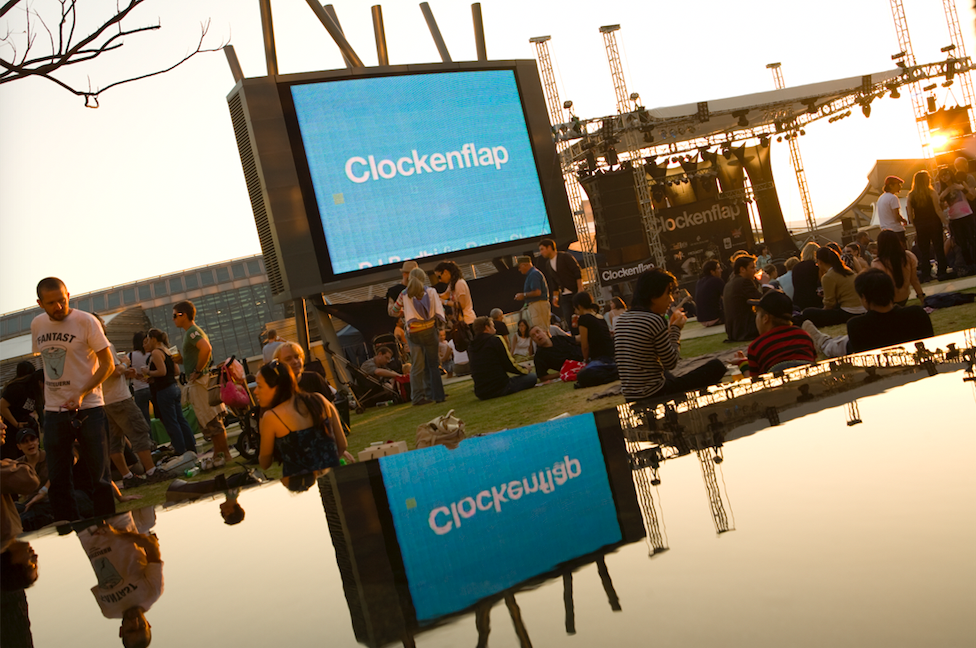
2003 BC: Before Clockenflap
Before Clockenflap, there was the infamous Harbour Fest, a bid by the American Chamber of Commerce and Invest HK to revive the Hong Kong economy following the SARS outbreak.
The music extravaganza attracted big names like Prince and the Rolling Stones, ran from Oct. 17 to Nov. 11 in 2003, and was held at the Tamar site in Admiralty.
It soon became a how-to on how not to organize a large-scale music event; an inquiry found that ticket sales were disappointing, almost every act was overpaid, and the total overrun ran into the millions.
The Standard even reported there were ugly scenes at ticket outlets as free tickets were snapped up within 30 minutes, leaving hundreds who had queued for hours, some overnight, screaming.
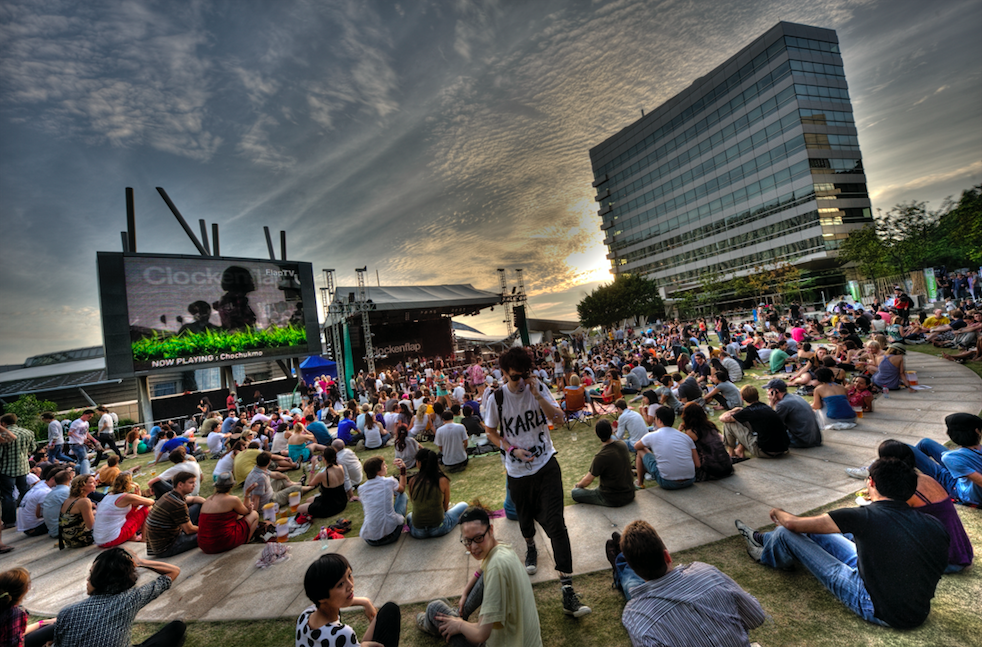
The Clockenflap story really began in mid-October 2003 in Victoria Park in Causeway Bay, the site of the first Rockit Hong Kong Music Festival, which was then organized by the Matrix Entertainment Group.
It was here that Forster and Sweeting first met while working as the festival’s artistic director and music consultant, respectively. Hill first met Forster in 1998.
It wasn’t until 2006, however — when Rockit was held for the fourth and final time — that the trio decided to create their own festival and bring together the things they were passionate about: music, art, food, family, and friends.
“It was more important for us to try and do something, I guess, [rather] than complain about something not existing,” Sweeting said.
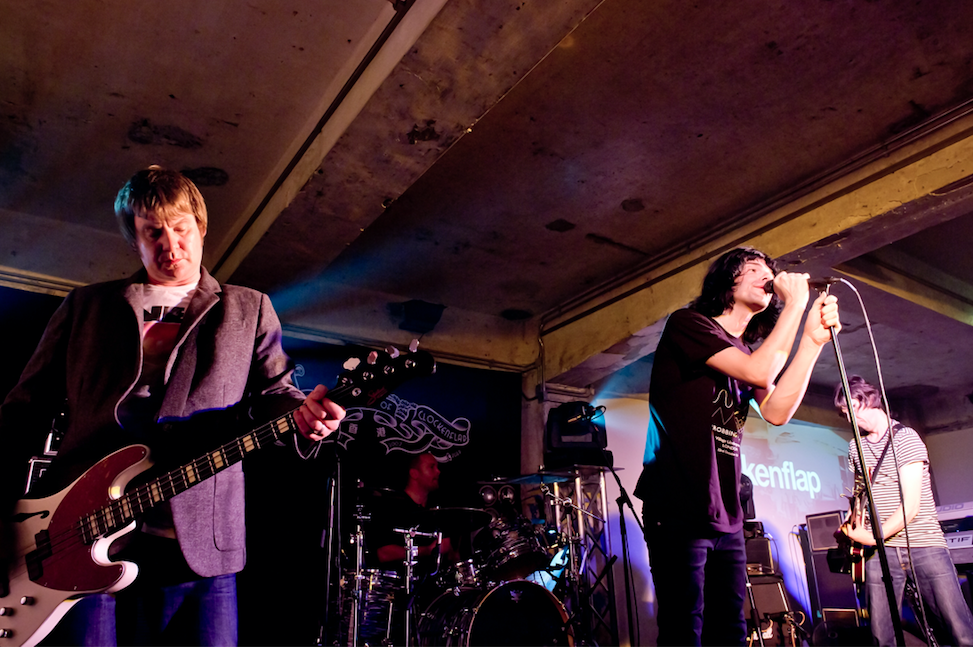
What’s in a name?
Sweeting said when they were naming the festival, a lot of people suggested giving it a generic name like “Rock Fest.” The trio, however, thought differently.
“We wanted something that didn’t have any trappings or associations with anything else, a name that could only really be associated with this experience, which is the coming together of all these things in kind of a silly manner.” Think Coachella or Burning Man.
Forster, who coincidentally named the short-lived Rockit, came up with the name Clockenflap in late 2006.
“I was ordering a lot of techno records from Berlin and DJ’ing, and these records had really strange names like ‘plippenflappen’, and ‘schlappenclippen’, and ‘knoppentoppen’, and all this kind of stuff,” he said.
Then one day when he was out with friends, Forster began to scribble down a series of words onto paper.
“I was just writing down these words, and one of them was ‘Clockenflap,’ and I looked at it and it just immediately struck me, it was just something, I didn’t know what it was, I just knew it was something, and then I kinda scratched out all the other words, just kept that one word, and that was it.”
Sweeting added: “At the time, everyone thought we were nuts for calling it Clockenflap because it didn’t stand for anything.”
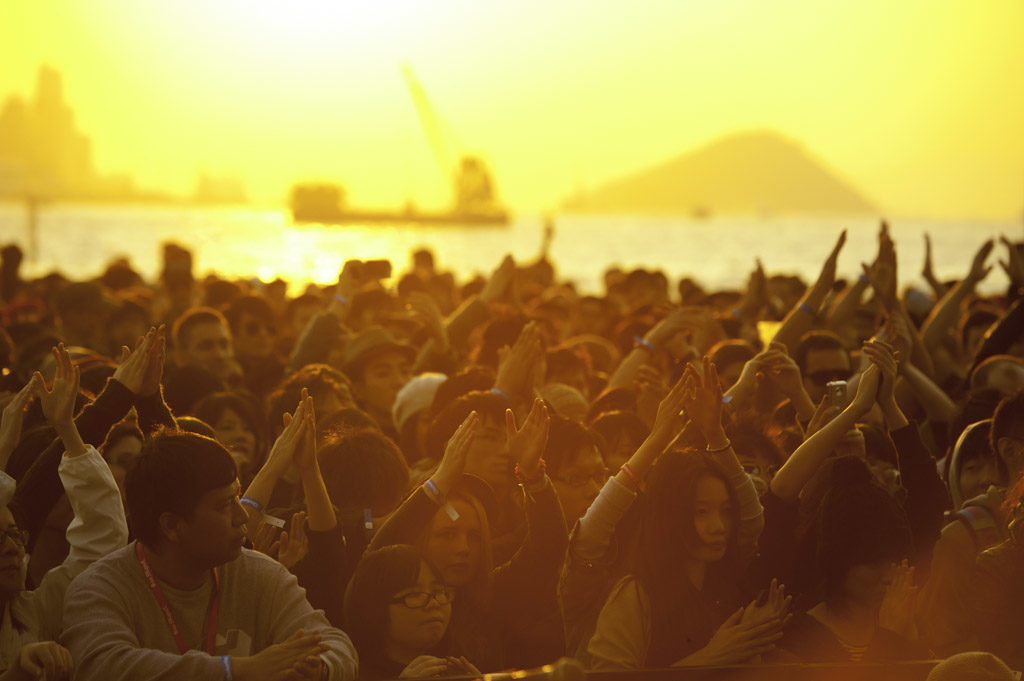
Hong Kong: A cultural desert
Banking, finance, property, and — cultural desert. These are the words people often think of when anyone mentions Hong Kong.
On the face of it, it looked like Forster, Hill, and Sweeting were trying to do the impossible: introducing a music festival to a city that had no festival culture, let alone an arts scene.
“I was born and raised in Hong Kong, and I never got to go to a festival here, and so naturally, people – the majority of people – didn’t understand what a festival is, and most people associate the word ‘festival’ with a religious festival,” Sweeting said.
“So I think being in a place which understandably didn’t have a developed festival culture meant that we spent a lot of time trying to educate or show people what our intentions were, what a festival can be, and why they can be so fun.”
For the co-founders, it was also important that art played a big role in the festival.
“Most of the festivals that I go to have a really strong arts component,” says Forster. “Glastonbury, Latitude, [at] a lot of these kinds of festivals, music and art sit really well together.”
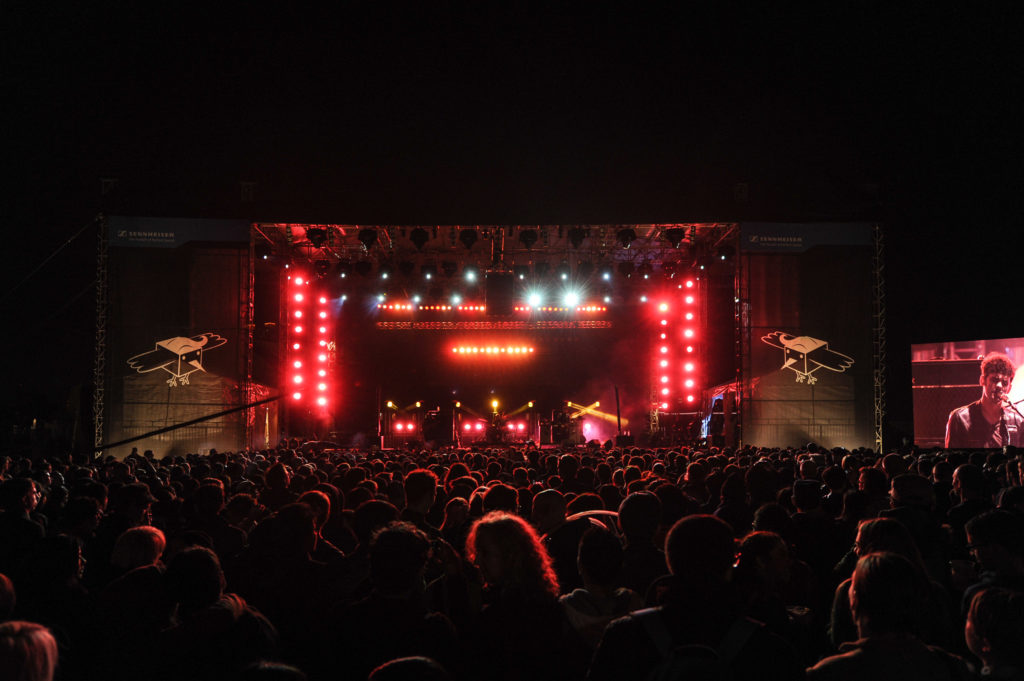
With music being the element that drives the ticket sales, Forster says this allows Clockenflap to experiment and display a number of art works that are creatively daring, without worrying about the commercial aspect.
“We’re not so concerned with the profile of the artists, it’s more about the quality of the work, and does it make sense in a festival setting, and I guess that didn’t exist before as far as I know,” Forster said.
The lack of an established festival scene in Hong Kong meant that the trio could not outsource the work, and had to build a lot of the Clockenflap infrastructure themselves. This included creating their own ticketing platform.
After a year or so of planning, Clockenflap opened its doors to the public in 2008.
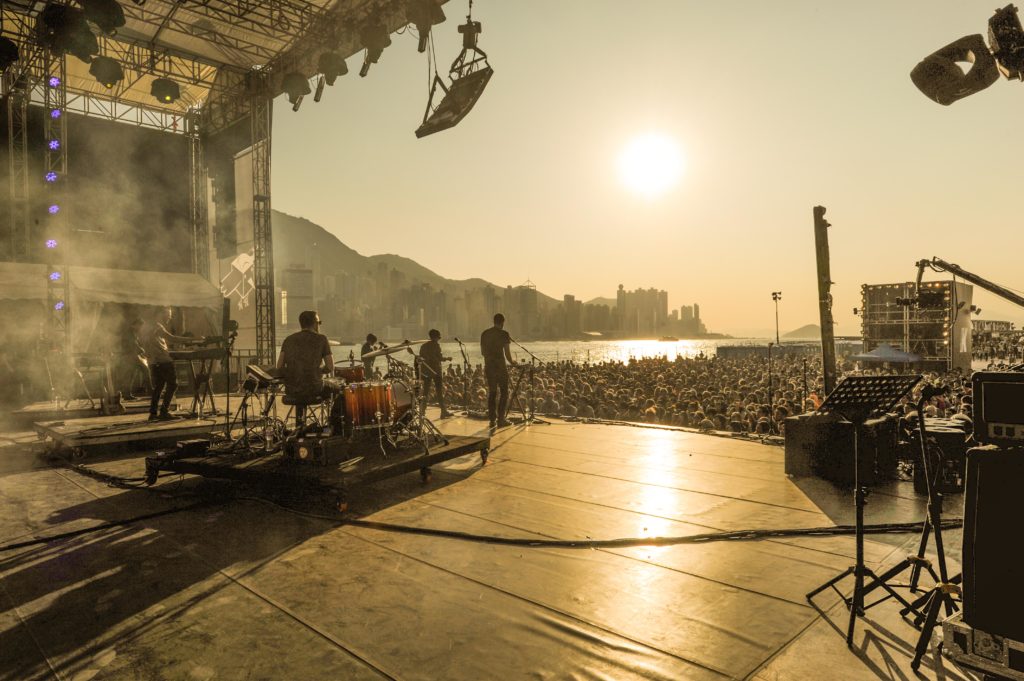
The Challenges
Always a challenge for Hongkongers, the city’s lack of space has forced Clockenflap’s organizers to get creative, though it once almost ruined them.
In the first two years, the festival was held in Cyberport, then moved to a warehouse in Aberdeen in its third year.
In 2011, however, they shifted to the West Kowloon Waterfront Promenade, where Forster said uncertainty about charging an entry fee to access the site, nearly broke the company.
“The first two years, we were charging tickets and it was all fine, people were happy to pay for the tickets. Then we moved to West Kowloon,” he said.
“Basically we were using some LCSD (Leisure and Cultural Services Department) land, and it just wasn’t really clear on the commercial aspects. So we basically realized it would be too risky to charge a ticket for that year, so we made it free basically, but that nearly killed us.
“We actually thought we would sell enough T-shirts to cover the cost, so we made thousands and thousands of T-shirts, and we sold about 10.”
Does he still have some of those T-shirts left? “I think we do,” he said, laughing.
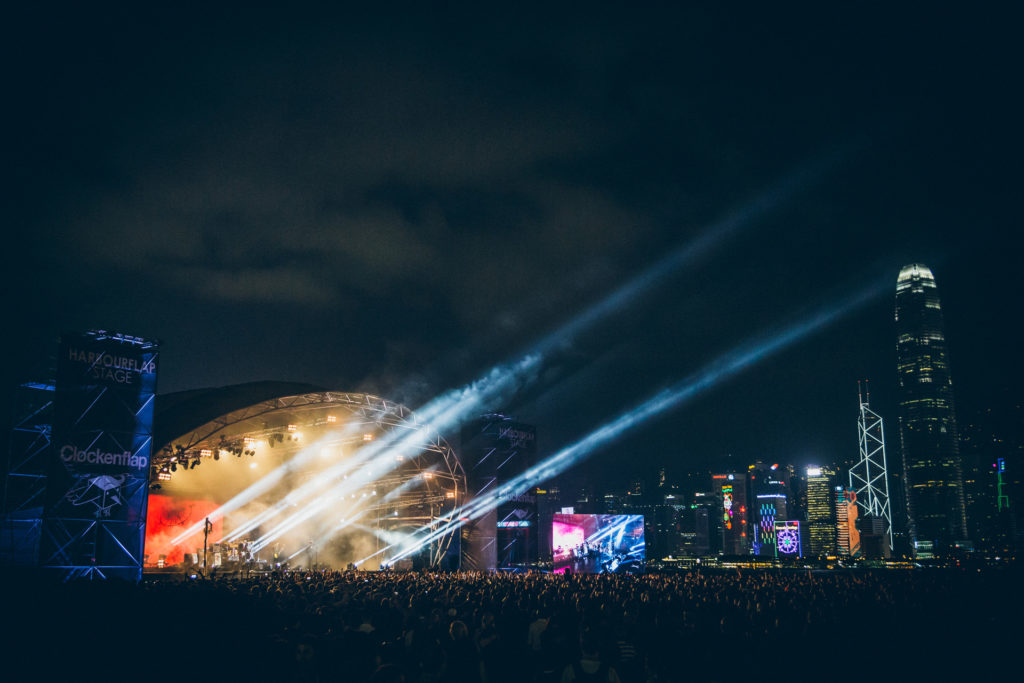
Clockenflap’s impact
Looking back, it’s hard to disagree with the notion that Clockenflap has played an important role in Hong Kong’s live music and creative arts scene.
Sweeting argues that events like Clockenflap do a number of things for Hong Kong: They make the city better and more liveable, more vibrant, promote social inclusion, celebrate creativity, create jobs and skills, bring thousands in tourism dollars, and put Hong Kong on the map for bands looking to tour Asia.
Clockenflap often gets a bad rap, with critics calling it a “gweilo festival,” a festival for foreigners. But Sweeting argues that the data they have proves otherwise.
“The majority of people who come to Clockenflap for the last three years now are majority local Chinese, the second-biggest group are local expats, and the third would be people coming for festival tourism,” he said.
Aside from the economic benefits of Clockenflap, the festival also plays an important role in promoting up-and-coming acts and artists.
Sweeting said he hopes attendees, exposed to new music, get inspired and search out the bands after the event.
“We do believe that the festival acts as a positive platform for artists, you know, which is one of the main points and acts as a real kind of showcase event.”
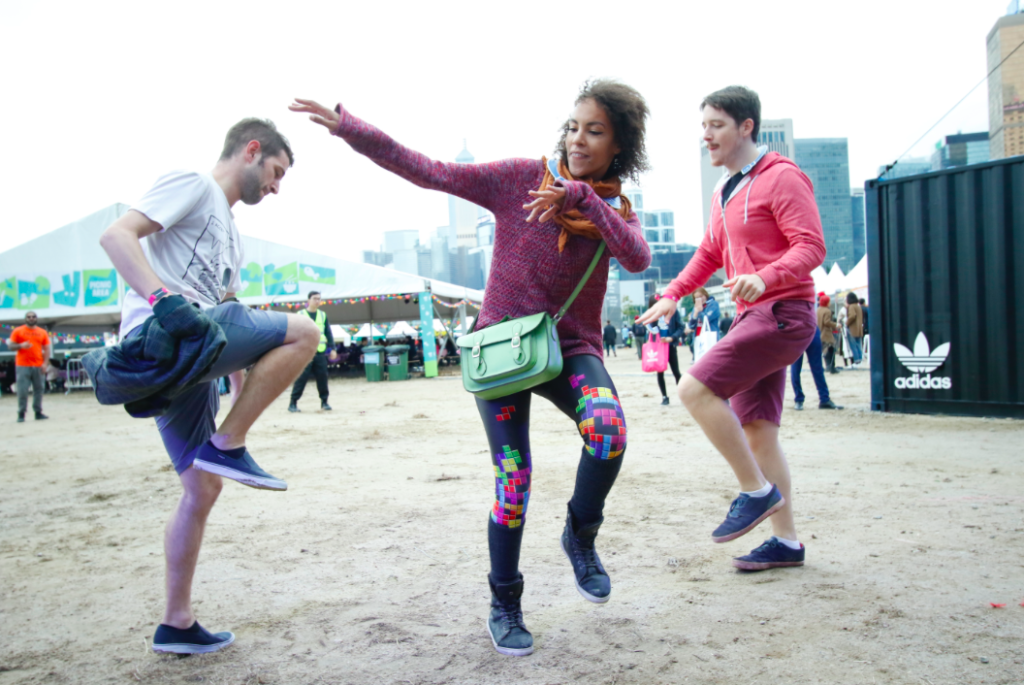
Clockenflap today
The machine behind Clockenflap is a well-oiled one, with Hill as the entrepreneurial mind behind Magnetic Asia, Clockenflap’s parent company and also the company that runs the festival’s online ticketing platform, Ticketflap.
On top of organizing Clockenflap, the company also provides events management services year-round, from comedy gigs to concerts.
Clockenflap too, is a year-round project. Sweeting said the team would move to start securing venues and artists for next year’s festival as soon as this weekend finishes.
And although Clockenflap has grown in its 10 years, Sweeting says that, in many ways, nothing much has changed.
“Our focus was always on the experience for the festival-goer rather than the bigness. We’ve always kinda believed in our vision for Clockenflap and that hasn’t changed at all since day one, it’s just the scale that has,” he said.
“We really want Clockenflap to ultimately to be the best city festival experience anywhere in the world, and for that to happen, we have to keep our focus more on how do we improve on it year on year, how do we stay true to the vision, and I think our company is more focused on that side of things, and hopefully we’ll stay on the right course to achieve that.”
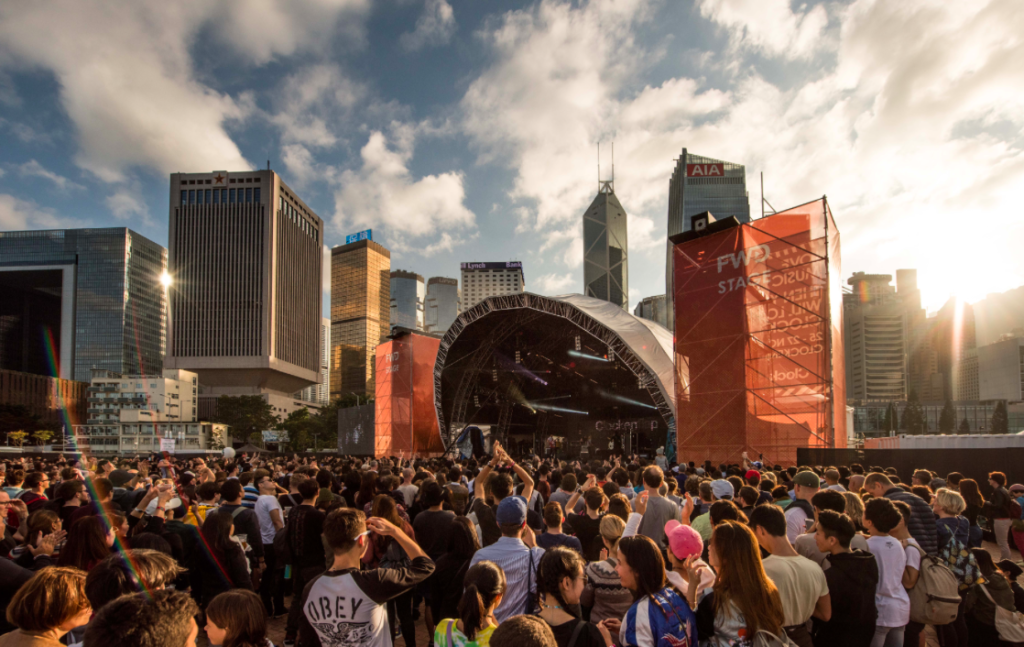
All photos provided by Clockenflap.
Clockenflap starts next week and runs Nov. 17, 18 and 19 at Hong Kong’s Central Harbourfront. Acts this year include Massive Attack, The Prodigy, Feist, Stormzy, Kaiser Chiefs, MØ, Jungle and many more. Three-day passes and tickets for individual days remain available via Ticketflap here.
Check out the full Clockenflap schedule here, and check out our guide on who to watch out for at the festival here.
Oh, and did we mention we’re giving away a couple more three-day passes? Go here to find out how to enter.
*A previous version of this story reported that Hill, Forster and Sweeting first met in 2003 and were working as the festival director, creative director and musical director for Rockit. Only Forster and Sweeting worked on Rockit, where the latter provided music consultation. Forster and Hill met in 1998.




